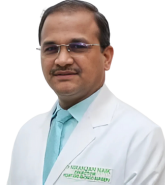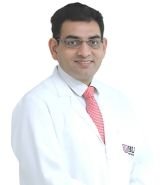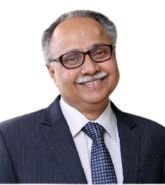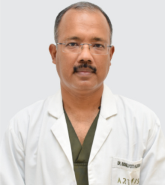Mouth Cancer Treatment in India
Mouth cancer, medically known as oral cavity cancer, represents a growing concern in India. Oral cancer ranks as the 6th most common cancer worldwide. India alone accounts for nearly a third of all global cases, making it the country with the second-highest number of oral cancer diagnoses in the world. This high incidence is observed in males and is closely linked to lifestyle and environmental factors like tobacco use, alcohol consumption, and betel nut chewing.
In India, the disease has a significant impact on the working-age population. The good news is that mouth cancer treatment in India has seen considerable advancements, with high-quality care now available in both the public and private sectors. Treatment is increasingly aligned with evidence-based international guidelines such as those by the National Comprehensive Cancer Network (NCCN) and the American Joint Committee on Cancer (AJCC).
A Brief Overview of Mouth Cancer
Mouth cancer is cancer affecting the oral cavity and its related structures. These are malignancies that begin in the tissues of the oral cavity. It commonly affects areas such as:
- Lips
- Inner lining of the cheeks
- Gums
- Floor of the mouth
- Roof of the mouth (hard and soft palate)
- Front two-thirds of the tongue
- Base of the tongue
- Retromolar trigone (area behind the last molars)
Most cases are squamous cell carcinomas, which means they arise from the flat, thin cells that line the inside of the mouth.
Symptoms You Should Watch Out For
Early detection of mouth cancer is critical to improving treatment outcomes and long-term survival. Unfortunately, many cases are diagnosed in advanced stages due to a lack of awareness. Recognising symptoms early can be life-saving.
Common symptoms include:
- Persistent sores or ulcers that don’t heal.
- White or red patches inside the mouth.
- An ulcer that has changed colour over time.
- Difficulty swallowing or chewing.
- Loose teeth.
- Unexplained bleeding.
- Persistent bad breath.
- Numbness in any part of the mouth.
- A lump or thickening of the cheek.
- Change in voice or speech difficulty.
- Pain in the ear or jaw without a dental cause.
- Low-grade chronic pain.
Understanding Risk Factors for Mouth Cancer
Knowing the risk factors for mouth cancer is crucial for prevention and early intervention. Mouth cancer, also called oral cancer, can often be prevented by addressing these risks.
- Tobacco Use
- Tobacco use, including smoking cigarettes and chewing tobacco, is the single biggest risk factor for oral cancer.
- Smokeless tobacco products such as gutka and khaini are widely consumed in India and contribute significantly to the disease burden.
- Studies show that cigarette smokers have a 5 to 27 times higher risk of oral cancer compared to non-smokers, depending on the amount and duration of smoking. For example, a large U.S. cohort study found male smokers had a 27.7-fold increased risk of oral cancer compared to never smokers; female smokers had nearly 6 times greater risk.
- Globally, smokeless tobacco accounts for over 30% of oral cancer cases, with India alone reporting 83,400 cases out of 120,200 worldwide in 2022, predominantly due to smokeless tobacco and areca nut use.
- Chewing gutka increases oral cancer risk by about 5 times, and supari (areca nut) chewing increases risk by over 11 times.
- Alcohol Consumption
- Alcohol, especially in heavy or moderate to heavy amounts, significantly raises the risk of oral cancers.
- Moderate drinkers have approximately 1.8 times higher risk of oral cavity and pharynx cancers than non-drinkers; heavy drinkers have about 5 times higher risk.
- When combined with tobacco use (smoked or smokeless), alcohol and tobacco synergistically increase oral cancer risk dramatically. The combined use can increase the odds of oral squamous cell carcinoma by over 5 times, and in some studies, up to 16 times when all three (alcohol, smoked and smokeless tobacco) are used together.
- Betel Nut (Areca Nut) Chewing
- Betel nut chewing, common in India and parts of Asia, is a strong independent risk factor for oral cancer.
- Regular chewing, especially when combined with tobacco, causes precancerous lesions like oral submucous fibrosis.
- In Assam, India, chewing betel nut more than 20 times a day increased oral cancer risk by over 13 times in men and over 5 times in women compared to non-chewers.
- India leads South Asia in oral cancer cases linked to betel nut and smokeless tobacco, with 83,400 cases reported in 2022.
- Poor Oral Hygiene
- Poor oral hygiene contributes to chronic irritation and inflammation, which can promote cancer development.
- Ill-fitting dentures, broken teeth, or sharp fillings cause chronic mucosal irritation, increasing cancer risk by promoting inflammation and possibly trapping carcinogens like tobacco and alcohol residues.
- Poor oral hygiene also correlates with higher rates of HPV infection, which is linked to about 70% of mouth and throat cancers.
- HPV Infection
- Human papillomavirus (HPV), particularly HPV-16, is strongly associated with oropharyngeal cancers.
- Prolonged Sun Exposure
- Exposure to ultraviolet radiation increases the risk of lip cancer, especially in outdoor workers such as farmers and laborers.
- Though less common than other oral cancers, lip cancer risk is linked to cumulative sun exposure.
- Family History and Genetic Factors
- A family history of head and neck cancers may increase an individual’s susceptibility, though this risk is less quantifiable compared to lifestyle factors.
By addressing these risk factors through public health policies, education, and individual behaviour changes, the onset of mouth cancer can be substantially prevented.
Doctors For Mouth Cancer
Need More Recommendations ?
Diagnosis and Cancer Staging
A comprehensive diagnostic approach ensures accurate treatment planning.
Diagnostic Tools:
- Clinical Examination: A thorough inspection of the oral cavity and lymph nodes of the neck by a trained oral and maxillofacial surgeon, head and neck surgeon, general surgeon or oncologist.
- Biopsy: Tissue sampling from the suspicious lesion, followed by histopathology. It can be an excisional or incisional biopsy depending on the type of lesion.
- Imaging Tests: MRI, CT scans, PET-CT, and ultrasound to determine the size, location, and spread of the tumor.
- Endoscopy: Helps in evaluating the throat and nearby structures.
- FNAC (Fine Needle Aspiration Cytology): For checking lymph node involvement.
Cancer Staging: AJCC 8th Edition
The AJCC staging system uses TNM classification:
- T (Tumor size and extent)
- N (Regional lymph node involvement)
- M (Distant metastasis)
The latest guidelines include Depth of Invasion (DOI) in primary tumor assessment and Extranodal Extension (ENE) in nodal staging. These factors significantly affect prognosis and guide treatment decisions.
Treatment Options for Mouth Cancer
Treatment depends on the stage, location, and overall health of the patient. A multidisciplinary team (MDT) approach is recommended, involving oral and maxillofacial surgeons (OMFS), ENT, head and neck surgeons, radiation oncologists, medical oncologists, nutritionists, and speech therapists.
1. Surgery
Surgical removal remains the cornerstone of treatment for most stages. It is the primary and most important aspect of the treatment planning.
a. Primary Tumor Resection
The goal of surgery is complete excision of the tumor with a margin of healthy tissue. The extent depends on the size and location. Smaller tumors may be excised with minimal loss of function, while larger tumors may require reconstructive surgery. The reconstruction can be done using local and regional flaps or via microvascular free flaps. Nowadays, PSI (patient-specific implants) are also used for reconstruction of the oral cavity.
b. Neck Dissection
Neck dissection is essential when lymph node metastasis is suspected or confirmed. One side or both sides of the neck may be addressed, depending on the tumor size and metastasis.
- Selective Neck Dissection: Removes specific lymph node levels while preserving non-involved structures.
- Modified Radical Neck Dissection: Removes most lymph nodes with some sparing of nerves and vessels.
- Radical Neck Dissection: Complete removal of lymph nodes and surrounding structures; used in extensive spread.
Depending on the number of nodes involved and the presence of ENE, the extent of neck dissection may vary.
2. Radiation Therapy
Radiation may be used as a standalone treatment in early-stage cancers, especially in cases where surgery is contraindicated, or as adjuvant therapy after surgery.
Indications for Radiation:
- Close or positive surgical margins.
- Lymph node involvement.
- Perineural or lymphovascular invasion.
- Advanced stage tumors.
- Tumors that are not resectable.
Modern techniques like IMRT (Intensity-Modulated Radiotherapy) minimize damage to surrounding healthy tissues.
3. Chemotherapy
Chemotherapy may be used in the following scenarios:
- Along with radiation (concurrent chemoradiation) in advanced-stage disease.
- As neoadjuvant chemotherapy (before surgery) to shrink tumors.
- As adjuvant chemotherapy (after surgery) in high-risk cases.
- In palliative care for metastatic or inoperable cancer.
The most common agents include cisplatin, 5-fluorouracil, and docetaxel.
4. Reconstructive Surgery
In cases where surgery results in significant tissue loss, reconstruction is crucial for aesthetic and functional recovery.
- Free flap reconstruction (e.g., radial forearm, fibula flap)
- Pedicled flaps (e.g., pectoralis major)
- Local flaps.
- Dental prosthetics, like dental obturators.
Speech and swallowing rehabilitation form a critical part of postoperative recovery.
Supportive Care for Recovery
Care doesn’t end with surgery or radiation. Comprehensive rehabilitation is necessary.
- Nutrition: Dietitians help manage feeding difficulties and maintain weight.
- Speech and Swallowing Therapy: Vital in restoring post-treatment functions.
- Pain Management: Palliative care ensures quality of life.
- Psychosocial Support: Counseling and support groups reduce anxiety and depression.
Mouth Cancer Treatment Facilities in India
Several top-tier hospitals in India offer high-quality mouth cancer treatment:
- Tata Memorial Hospital (Mumbai)
- AIIMS (New Delhi)
- Kidwai Memorial Institute (Bangalore)
- Cancer Institute (WIA) Chennai
- Private centers: Max, Apollo, HCG, Fortis, Medanta, and others
These hospitals have dedicated oncology departments, advanced surgical suites, and rehabilitation teams.
5 easy Steps to Get Treated in India

Share Case Details

Get Expert Opinion and Hospital Quotes

Get Visa Invitation & Hotel Recommendations

Get Received At Airport and Start Your Treatment

Travel Back and Get Followups Through Us
Prevention and Early Detection
Preventing mouth cancer starts with eliminating risk factors and promoting awareness.
Preventive Measures:
- Avoid all forms of tobacco.
- Limit alcohol consumption.
- Practice good oral hygiene
- Use sunscreen on lips.
- Get vaccinated against HPV.
- Attend regular dental check-ups.
Public health campaigns and screening programs in schools and rural areas are helping in early detection. Most often, the first point of contact will be your dentist or OMFS surgeon during routine dental procedures, who can diagnose and direct you.
When Time is Essential: The Impact of Early Mouth Cancer Detection
A mouth cancer diagnosis changes everything—not just for patients, but for everyone who loves them. While the medical reality is stark, there’s genuine hope when we catch it early and pursue thorough treatment.
Across India’s major cities, healthcare systems have evolved to offer world-class cancer care following international standards. This isn’t just about having the right equipment; it’s about giving families the fighting chance they deserve.
For those supporting a loved one through this journey, we understand it feels impossible sometimes. The endless appointments, the technical terms, the weight of making life-altering decisions while trying to stay strong. Remember that your presence matters profoundly. Ask questions until things make sense. Follow through with appointments even when they seem endless. And most importantly, don’t forget that your emotional well-being counts too.
The difference between catching mouth cancer early versus late can quite literally be the difference between life and death. This isn’t medical jargon—it’s the reality families face every day. With the right team, timely action, and unwavering support, the road ahead becomes one that many more people can successfully travel.
CancerRounds connects patients with specialised treatment teams who truly understand the complexities of oral cancers. Our personalised care approach knows you’re a person with unique needs deserving of complete support throughout your journey. Contact us today to know more.
You May Be Also Interested In
All Treatment Pages
Related Patient Stories
My wife had oral cancer. With Cancer Rounds’ help, we came to BLK Hospital. Thanks to Dr. Kapil Kumar, she's feeling better now.
Our Impact
CancerRounds is making quality cancer care accessible to more people every day.




Why Choose India for Cancer Treatment?

World-Class Care
Skilled oncologists provide top-tier medical services

Affordable Treatment
Costs are significantly lower than in Western countries.

Comprehensive Packages
Hospitals offer all-inclusive plans covering surgery, stay, and aftercare.

Easy Accessibility
Well-connected airports and international flight routes.

Proven Success
High patient satisfaction and positive treatment outcomes






 Chat on WhatsApp
Chat on WhatsApp